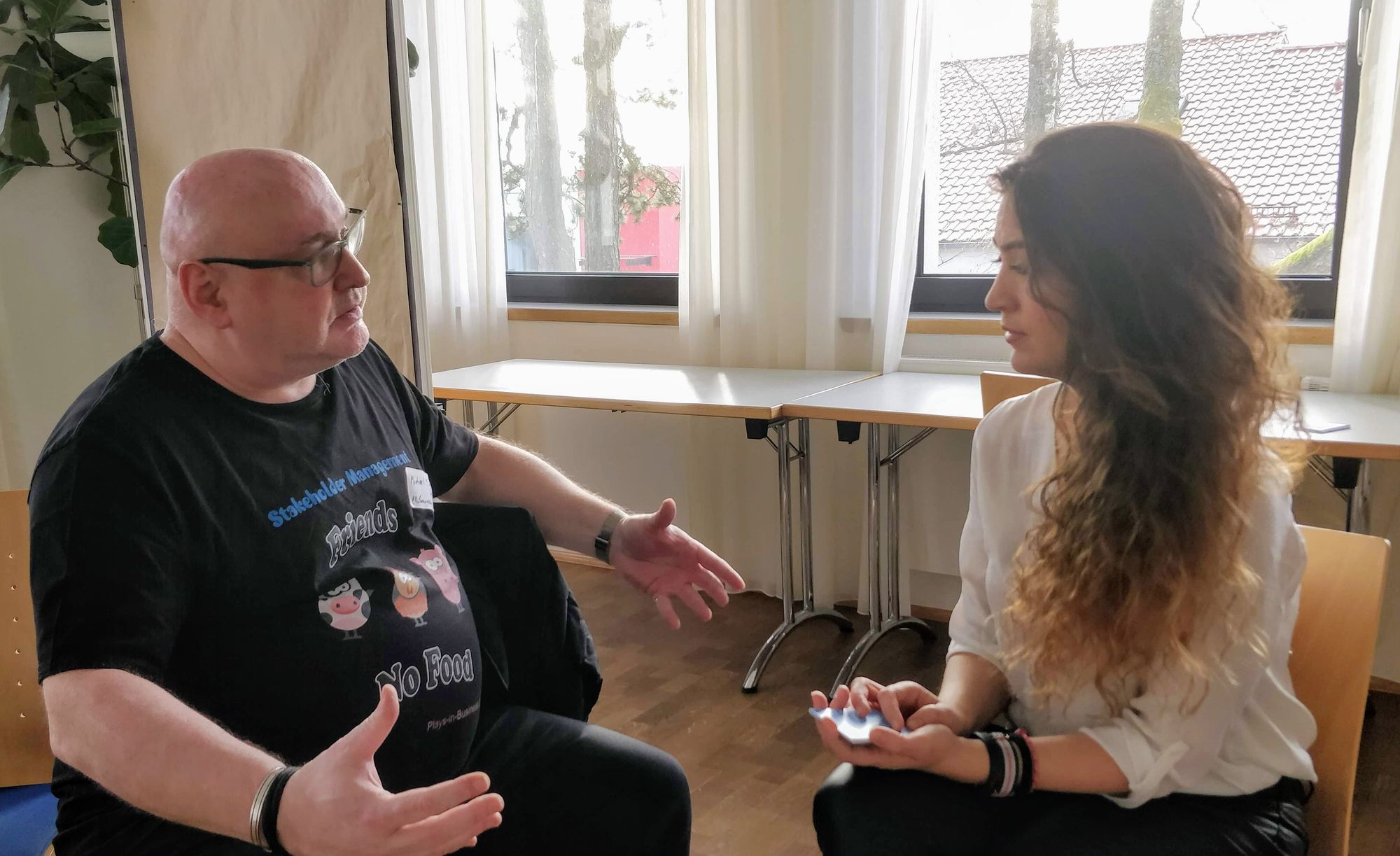Last weekend I attended the Play4Agile 2020 unconference, which was the 10th anniversary of the event. I hosted a playtest session of my Startup Impact game there, among other things. In this post, I will do an overview of the game, the playtest setup I used and discuss the insights I got.
Startup Impact
Startup Impact is a card game which enables rich and relevant conversations about a startup’s current situation and biggest challenges facing it and how to meet those challenges.
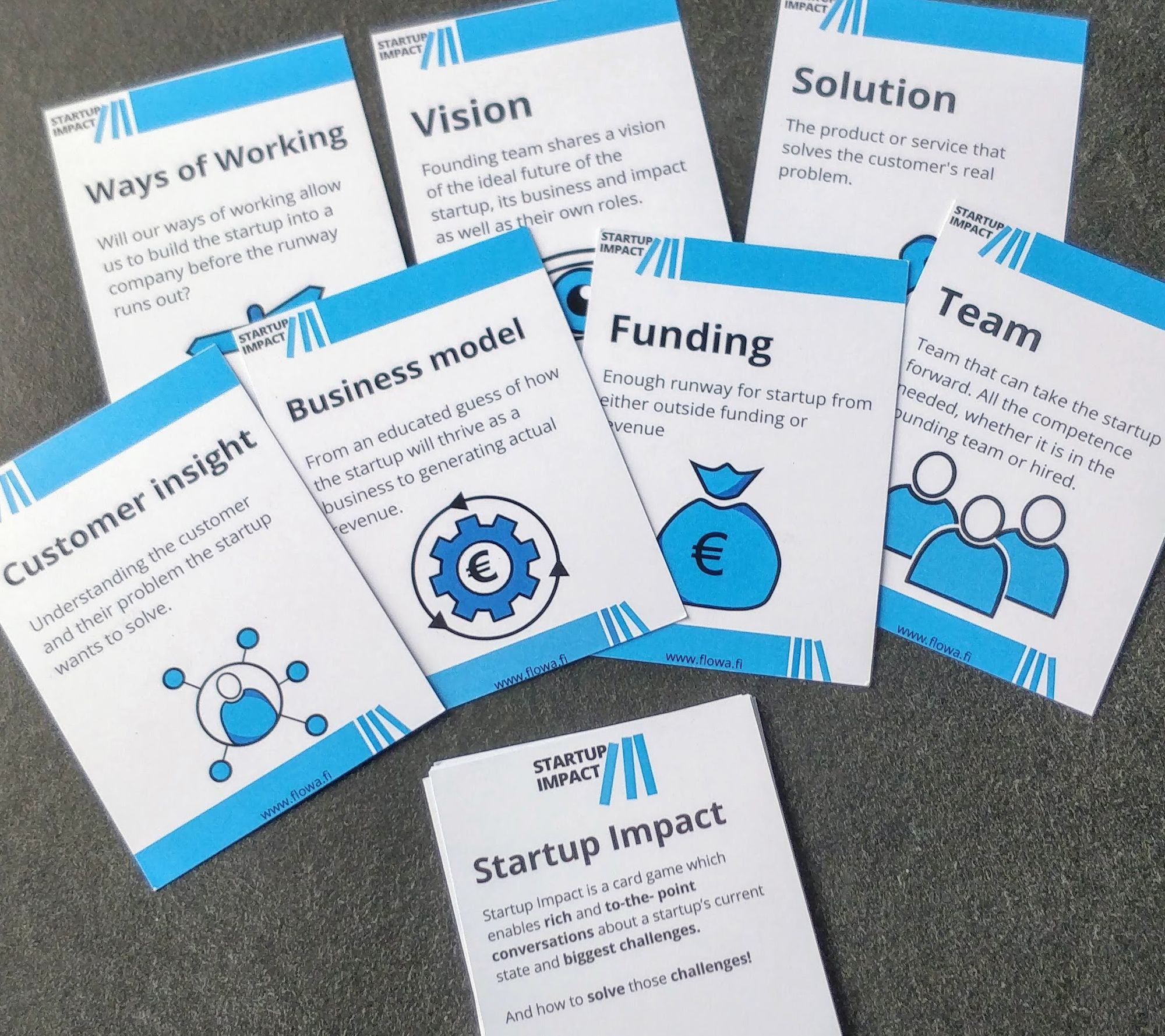
It is now in beta version and I’m getting promising feedback from playtests. If you want to check it out, and support further development, you can get the Startup Impact game here.
Sidenote: Play4Agile
Play4Agile is an unconference for people interested in agile and games. It has been a big part of my life for the past 10 years – ten years ago it was the place where I found one of my tribes! There are a lot of people in the P4A community who are interested in creating games for learning agile methods and knowledge work organization principles.
My Playtest Setup
My playtest hypothesis was:
With a short introduction from me, people can play the game themselves and they find the discussion that the game produces meaningful.
I had only playtested Startup Impact myself, being the facilitator myself while playing with other people. I wanted to see if I could present the how to play information so well (in my spoken introduction and in the game instructions) that people would be able to play by themselves.
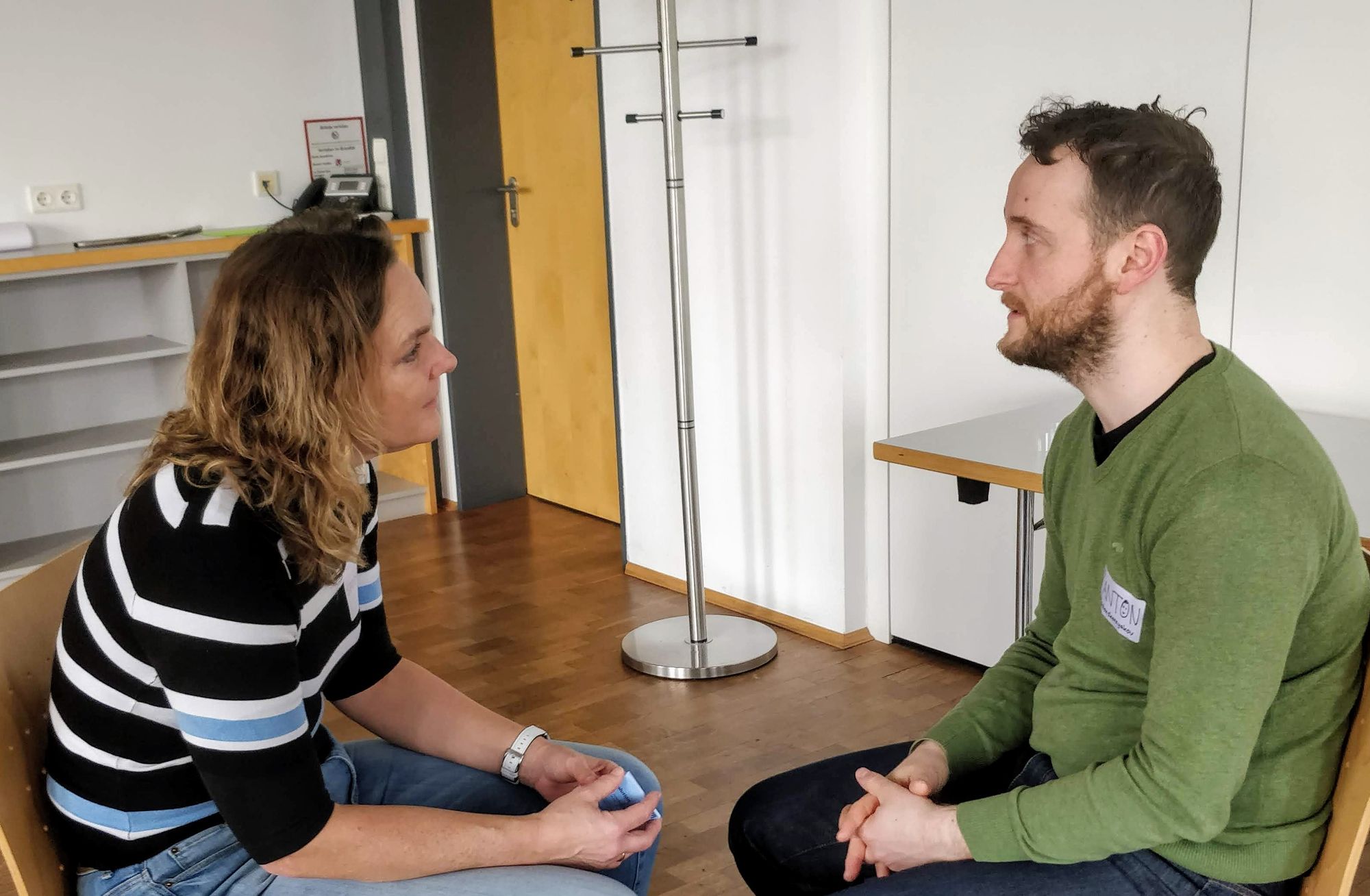
Playing in pairs, then debriefing together
The playtest session structure was like this:
- Introduction to the game (10 min.)
- Assign roles and pair up (5 min.)
- Playtest, in pairs (20 min.)
- Debrief (15 min.)
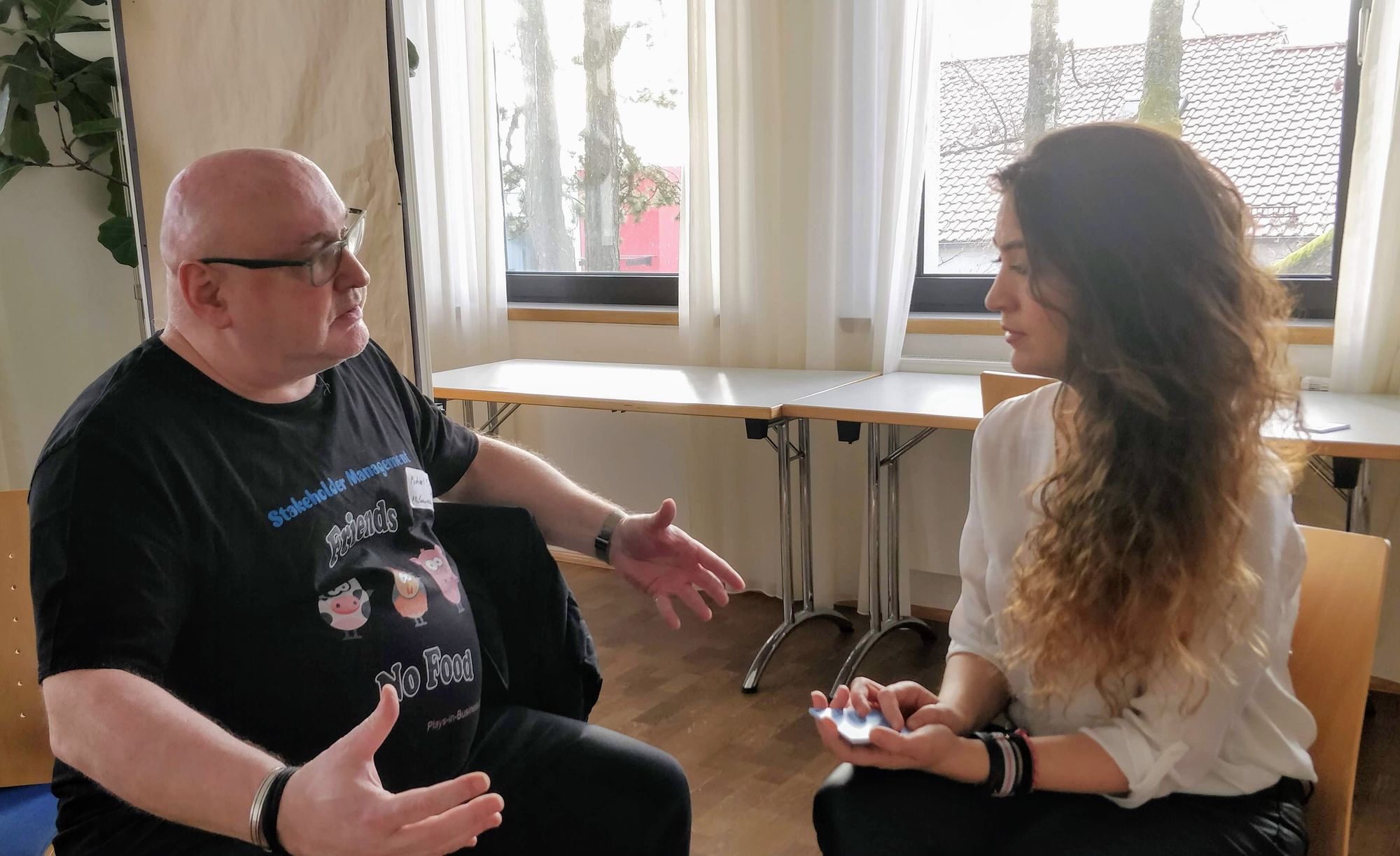
In the session, I had three pairs of players trying the game out. You know who you are and I am very grateful for your willingness to try the game out and help me develop it further! Much appreciated <3
The Game Structure and Instructions Work!
In the playtest, my hypothesis was generally proven true. People could play the game by themselves, and some of them even found out additional support for facilitating the discussion from instruction cards.
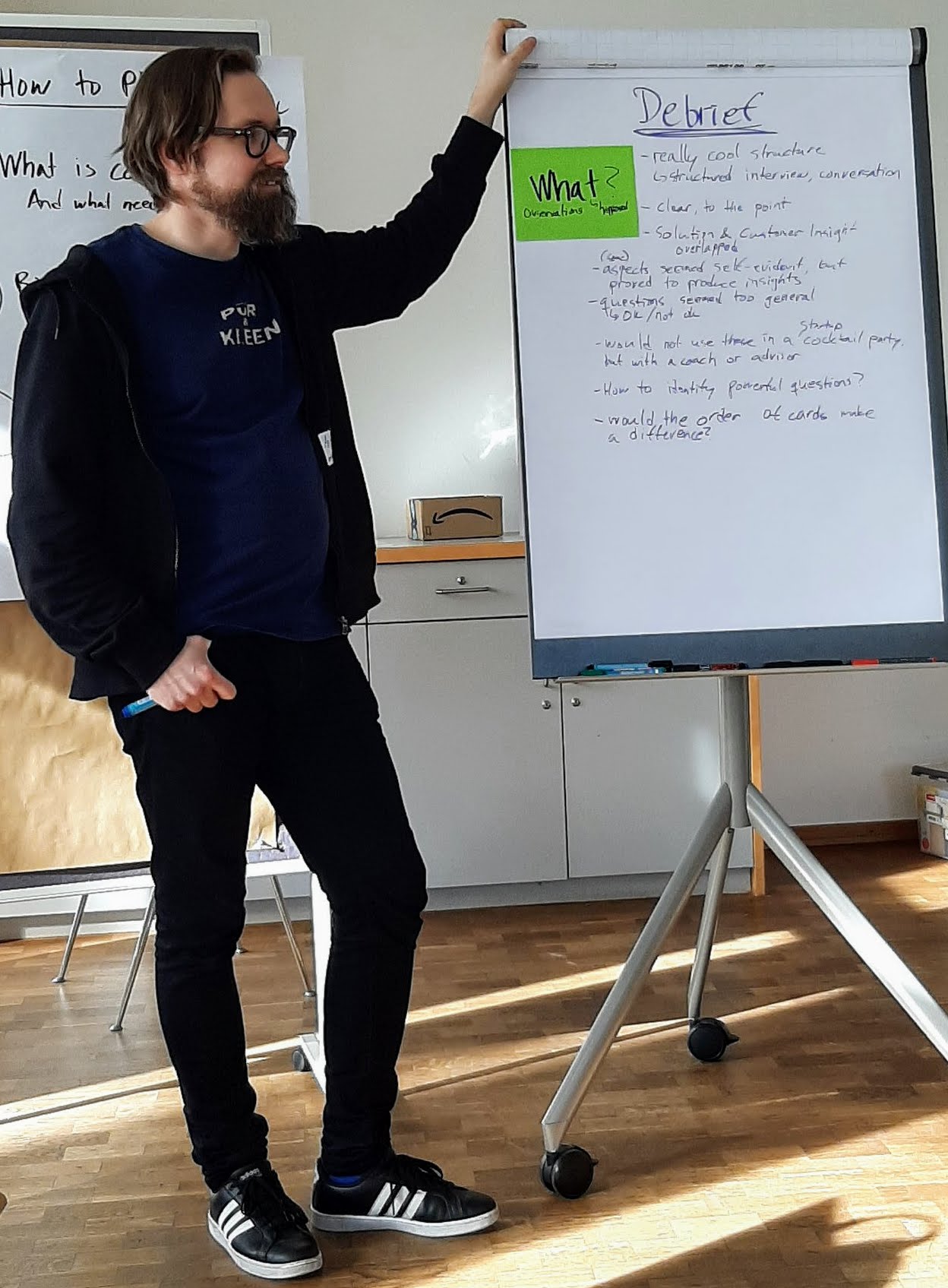
I got valuable suggestions to make the game even more easy to play. Providing a preferred order to discuss the aspect cards is especially something I will try out in practice in later playtests.
What is the Early Adopter audience?
The other valuable debrief discussion was about where and with whom the game would provide most value.
My reasons for creating Startup Impact was:
- To enable more meaningful conversations for me with founders of impact and sustainability startups in startup events and other similar encounters. I have also the hypothesis that
- For startup founders to create shared understanding amongst themselves.
- For advisors and potential investors to structure their discussions with startup founders.
From the playtesters I got the feedback that they would see startup founders as the most promising target audience for the game. I heard doubts about whether startup events would be safe enough places for founders to openly discuss their own challenges.
There were also doubts raised whether advisors or investors would have time or need for this kind of structured discussion. And we discussed that there are many kinds of startup advisors, some of which might find Startup Impact very helpful.
That is definitely my next action point for Startup Impact: explore the different player segments further and see where there is a good Problem/Solution fit.
Big thank you to my playtesters who allowed me to have these insights and from a better understanding where to focus on next in developing Startup Impact!
If you want to check the Startup Impact game out, and support further development, you can get the game here.
